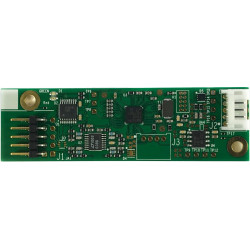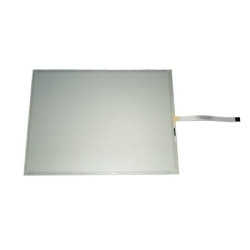-
вернутьсяX
-
Компоненты
-
-
Category
-
Полупроводниковые приборы
- Диоды
- Тиристоры
-
Электро-изолированные модули
- Электроизолированные модули | ВИШАЙ (ИК)
- Электроизолированные модули | INFINEON (EUPEC)
- Электроизолированные модули | Семикрон
- Электроизолированные модули | POWEREX
- Электроизолированные модули | IXYS
- Электроизолированные модули | ПОЗЕЙКО
- Электроизолированные модули | ABB
- Электроизолированные модули | TECHSEM
- Перейти в подкатегорию
- Выпрямительные мостики
-
Транзисторы
- Транзисторы | GeneSiC
- Модули SiC MOSFET | Mitsubishi
- Модули SiC MOSFET | STARPOWER
- Модули ABB SiC MOSFET
- Модули IGBT | МИЦУБИСИ
- Транзисторные модули | MITSUBISHI
- Модули MOSFET | МИЦУБИСИ
- Транзисторные модули | ABB
- Модули IGBT | POWEREX
- Модули IGBT | INFINEON (EUPEC)
- Полупроводниковые элементы из карбида кремния (SiC)
- Перейти в подкатегорию
- Драйвера
- Блоки мощности
- Перейти в подкатегорию
- Электрические преобразователи
-
Пассивные компоненты (конденсаторы, резисторы, предохранители, фильтры)
- Резисторы
-
Предохранители
- Миниатюрные предохранители для электронных плат серии ABC и AGC
- Быстрые трубчатые предохранители
- Медленные вставки с характеристиками GL/GG и AM
- Ультрабыстрые плавкие вставки
- Быстрые предохранители английский и американский стандарт
- Быстрые предохранители европейский стандарт
- Тяговые предохранители
- Высоковольтные предохранительные вставки
- Перейти в подкатегорию
-
Конденсаторы
- Конденсаторы для электромоторов
- Электролитические конденсаторы
- Конденсаторы типа snubbers
- Конденсаторы мощности
- Конденсаторы для цепей DC
- Конденсаторы для компенсации пассивной мощности
- Высоковольтные конденсаторы
- Конденсаторы большой мощности для индукционного нагрева
- Импульсные конденсаторы
- Конденсаторы звена постоянного тока
- Конденсаторы для цепей переменного/постоянного тока
- Перейти в подкатегорию
- Противопомеховые фильтры
- Ионисторы
-
Защита от перенапряжения
- Ограничители перенапряжения для приложений RF
- Ограничители перенапряжения для систем технического зрения
- Ограничители перенапряжения для линий электропередач
- Ограничители перенапряжения для светодиодов
- Ограничители перенапряжения для фотовольтаики
- Ограничители перенапряжения для систем взвешивания
- Ограничители перенапряжения для Fieldbus
- Перейти в подкатегорию
- Перейти в подкатегорию
-
Реле и контакторы
- Теория реле и контакторы
- Полупроводниковые реле AC 3-фазные
- Полупроводниковые реле DC
- Контроллеры, системы управления и аксессуары
- Системы плавного пуска и реверсивные контакторы
- Электро-механические реле
- Контакторы
- Оборотные переключатели
-
Полупроводниковые реле AC 1-фазные
- РЕЛЕ AC 1-ФАЗНЫЕ СЕРИИ 1 D2425 | D2450
- Однофазное реле AC серии CWA и CWD
- Однофазное реле AC серии CMRA и CMRD
- Однофазное реле AC серии PS
- Реле AC двойное и четверное серии D24 D, TD24 Q, H12D48 D
- Однофазные твердотельные реле серии gn
- Однофазные полупроводниковые реле переменного тока серии ckr
- Однофазные реле переменного тока ERDA И ERAA SERIES для DIN-рейки
- Однофазные реле переменного тока на ток 150А
- Двойные твердотельные реле, интегрированные с радиатором для DIN-рейки
- Перейти в подкатегорию
- Полупроводниковые реле AC 1-фазные для печати
- Интерфейсные реле
- Перейти в подкатегорию
- Индукционные компоненты
- Радиаторы, варисторы, термическая защита
- Вентиляторы
- Кондиционеры, оборудование для шкафов, охладители
-
Аккумуляторы, зарядные устройства, буферные источники питания и инверторы
- Аккумуляторы, зарядные устройства - теоретическое описание
- Модульные литий-ионные аккумуляторы, пользовательские батареи, Система управления батареями (BMS)
- Аккумуляторы
- Зарядные устройства и аксессуары
- Резервный источник питания ИБП и буферные источники питания
- Преобразователи и аксессуары для фотовольтаики
- Хранилище энергии
- Топливные элементы
- Литий-ионные аккумуляторы
- Перейти в подкатегорию
-
Автоматика
- Futaba Drone Parts
- Концевые выключатели, Микровыключатели
- Датчики Преобразователи
- Пирометры
- Счетчики, Реле времени, Панельные измерительные приборы
- Промышленные защитные устройства
- Световые и звуковые сигнальные установки
- Термокамеры, Тепловизоры
- LED-экраны
- Управляющая аппаратура
-
Регистраторы
- Регистраторы температуры с записью на ленту и с цифровым показателем - AL3000ym - AL3000
- Микропроцесорные регистраторы с экраном LCD серия KR2000
- Регистратор KR5000
- Измеритель с функцией регистрации влажности и температуры HN-CH
- Эксплуатационные материалы для регистраторов
- Компактный графический регистратор 71VR1
- Регистратор KR 3000
- Регистратор PC серии R1M
- Регистратор PC серии R2M
- Регистратор PC, USB, 12 изолированных входов – RZMS
- Регистратор PC, USB, 12 изолированных входов – RZUS
- Перейти в подкатегорию
- Перейти в подкатегорию
-
Провода, литцендрат, гофрированные рукава, гибкие соединения
- Провода
- Многожильные провода (Lica)
-
Кабели и провода для специальных применений
- Удлинительные и компенсационные провода
- Провода для термопар
- Присоединительные провода для датчиков PT
- Многожильные провода темп. от -60C до +1400C
- Провода среднего напряжения
- Провода зажигания
- Нагревательные провода
- Одножильные провода темп. от -60C до +450C
- Железнодородные провода
- Нагревательные провода в Ex
- Перейти в подкатегорию
- Оболочки
-
Плетеные кабели
- Плоские плетеные кабели
- Круглые плетеные кабели
- Очень гибкие плетеные кабели - плоские
- Очень гибкие плетеные кабели - круглые
- Медные цилиндрические плетеные кабели
- Медные цилиндрические плетеные кабели и кожуха
- Гибкие заземляющие ленты
- Цилиндрические плетеные провода из луженой и нержавеющей стали
- Медные изолированные плетеные провода PCV - температура до 85 градусов C
- Плоские алюминиевые плетеные провода
- Соединительный набор - плетеные провода и трубки
- Перейти в подкатегорию
- Аксессуары для тяги
- Кабельные наконечники
- Изолированные эластичные шины
- Многослойные гибкие шины
- Системы прокладки кабеля (PESZLE)
- Трубы
- Перейти в подкатегорию
- Просмотреть все категории
-
Полупроводниковые приборы
-
-
- Поставщики
-
Программы
- Energy bank
- Автоматика HVAC
- Горное дело, металлургия и литейное дело
- Двигатели и трансформаторы
- Измерение и регулирование температуры
- Измерение и регулирование температуры
- Индукционный нагрев
- Индустриальная автоматизация
- Источники питания (ИБП) и выпрямительные системы
- Компоненты для потенциально взрывоопасных сред (EX)
- Машины для сушки и обработки древесины
- Машины для термоформования пластмасс
- Оборудование для распределительных, контрольных и телекоммуникационных шкафов
- Печать
- Приводы переменного и постоянного тока (инверторы)
- Промышленная автоматика
- Промышленные защитные устройства
- Сварочные аппараты и сварочные аппараты
- Станки с ЧПУ
- Трамвай и ж / д тяга
-
Монтаж
-
-
Индукторы
-
-
Индукционные устройства
-
-
https://www.dacpol.eu/pl/naprawy-i-modernizacje
-
-
Услуга
-
- Контакт
- Zobacz wszystkie kategorie
How to choose the right resistive touch panel for industrial applications

In the industry, automation and digitization of processes are increasingly important, often involving the use of advanced user interfaces like touch panels. In many industrial applications, choosing the right touch panel is a challenge, especially when adapting to specific working conditions such as high humidity, dust, or the need for glove operation. Resistive touch panels are a popular choice in industrial applications due to their durability and reliability. In the article below, we will discuss what to consider when selecting the appropriate resistive touch panel for industrial applications.
Advantages of Resistive Touch Panels
Resistive touch panels are known for their high sensitivity and resistance to harsh environmental conditions. Unlike capacitive touch screens, which require conductivity (e.g., finger contact), a resistive screen operates based on pressure. This means that a resistive touch screen can be operated not only by finger but also by stylus, tool, or even while wearing gloves, which is extremely useful in industrial environments.
The main advantages of resistive screens are:
- High pressure sensitivity – The resistive touch screen can precisely detect pressure, even when using objects other than a finger.
- Resistance to contamination – Resistive touch panels are less susceptible to the effects of dust, moisture, or dirt, making them ideal for environments with high levels of contamination.
- Low cost – Compared to other touch technologies, resistive touch screens can be a more economical choice, which is important for larger investments in industrial infrastructure.
What Features Should a Resistive Touch Panel Have for Industrial Applications?
When choosing a resistive touch screen, it's essential to consider several key parameters that will impact its longevity and reliability in demanding industrial environments. Here’s what to keep in mind:
- Resistance to Harsh Environmental Conditions
In industry, screens are exposed to a range of factors such as dust, moisture, temperature fluctuations, and chemicals. Resistive touch panels, thanks to their layer-based construction, are often more resistant to these factors than other types of screens. It is advisable to choose models with additional protection against dust and water, suitable for operation even in extreme conditions.
- Sensitivity and Accuracy
For industrial applications, it is important that the resistive screen is not only durable but also precise. In areas requiring millimeter accuracy, such as laboratories or production lines, a precise resistive panel can ensure optimal performance without risk of error. Most resistive touch panels allow sensitivity adjustment, which is advantageous in various operating conditions.
- Compatibility with Gloves and Tools
In heavy industry, where workers often use protective gloves, traditional capacitive touch panels may not be convenient. A resistive touch panel allows for easy operation in gloves, which enhances both usability and safety. This way, operators can effectively use the interface without removing protective gloves.
- Scratch and Mechanical Damage Resistance
Due to their construction, resistive touch panels are resistant to accidental mechanical damage, which is crucial in environments where devices are exposed to contact with hard objects or tools. It's recommended to select a resistive screen coated with a scratch-resistant layer to ensure a longer lifespan and aesthetic appearance.
- Ease of Maintenance and Low Maintenance Costs
Resistive touch panels are relatively easy to maintain, which reduces operational costs. In industrial conditions, where regular disinfection or cleaning of screens is necessary, the resistive touch screen allows easy cleaning without risk of damage.
Types of Industrial Applications Where Resistive Touch Panels Excel
Resistive touch panels are widely used in many industrial sectors. Here are examples of applications where a resistive touch screen may be the best choice:
- Industrial Automation
In production plants where touch panels are part of machinery and equipment, resistive screens allow precise operation even in harsh conditions. For operators working in gloves, a resistive touch panel provides a convenient way to manage production processes.
- Chemical and Pharmaceutical Industries
In these industries, it is crucial that the resistive touch screen is resistant to chemical exposure and easy to disinfect. Since the resistive screen operates independently of moisture or chemical presence, it is a safe choice for applications that require working in a chemical environment.
- Transport and Logistics
In the logistics industry, resistive touch panels are used in terminals for supply chain management and resource monitoring. Their resistance to contamination and compatibility with gloves make resistive touch screens a popular choice in this sector.
- Energy and Heavy Industry
In power plants and industrial facilities, where touch panels are exposed to high temperatures, dust, or vibrations, the resistive screen performs well due to its durability. In this environment, a resistive touch screen provides a stable operation with minimal maintenance requirements.
Available Types of Resistive Touch Panels
Various types of resistive touch panels are available on the market, differing in parameters, construction, and protection level. Key types include:
- 4-wire resistive touch panels – The simplest type of resistive screens, primarily used in applications that do not require high precision. These are economical solutions suitable for less demanding environments.
- 5-wire resistive touch panels – Provide greater precision and longer lifespan. This resistive touch screen technology is used where high durability and resistance are required.
- 8-wire resistive touch panels – These advanced screens are designed for applications requiring the highest accuracy and resistance. Resistive touch panels in this technology are characterized by increased durability against mechanical damage.
Conclusion
Resistive touch panels are an excellent choice for industry due to their resistance to harsh conditions and suitability for various environments. When selecting the appropriate resistive touch panel, it is important to consider the specific application requirements, such as contamination resistance, glove compatibility, and high precision needs.
Связанные продукты
Связанные посты
 Now available – DC/DC converters from PREMIUM
Now available – DC/DC converters from PREMIUM
 New release in DACPOL lighting for lathes – Kira covers
New release in DACPOL lighting for lathes – Kira covers






Оставить комментарий